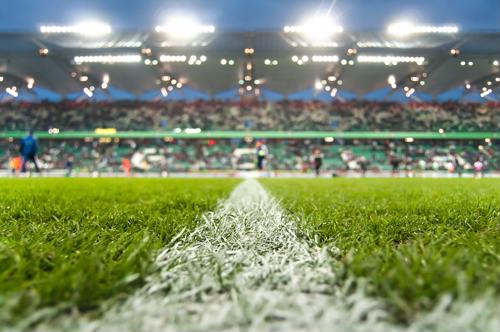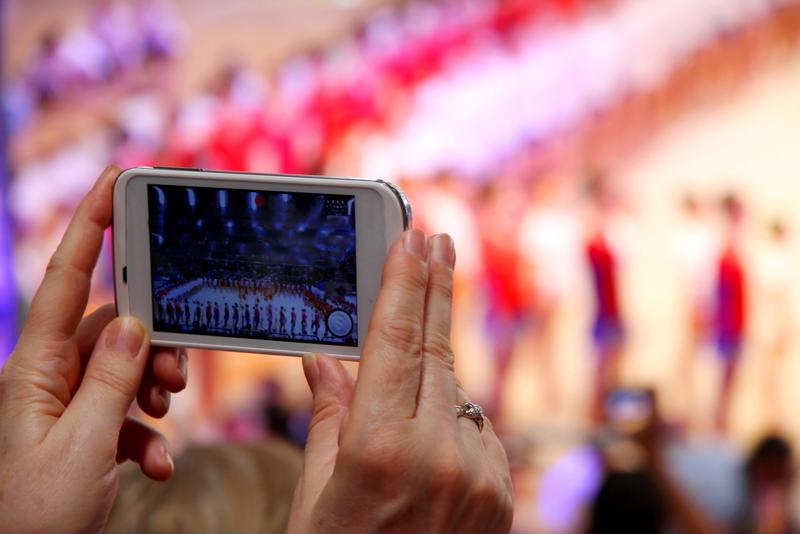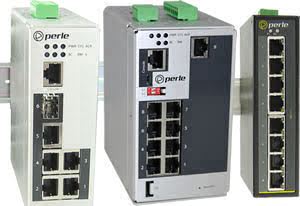
Network-based services increasingly vital in stadium, arena experiences
By Max BurkhalterMarch 17, 2016
Stadiums, arenas and similar venues are often spectacles of architectural prowess. If one considers the end goal to create something that is visually pleasing while getting the job done in the most efficient way possible, then these venues are at the pinnacle of design. Consider that many historians believe that the Roman Colosseum could be filled within the span of 15 minutes and evacuated in just five. And that's an ancient marvel. Modern venues must do even more.
However, if the purpose of design is to consider the primary uses of the venue, you must constantly look at the different ways people interact with a structure. Stadium and arena owners the world over are facing a crisis here, as the increasingly digital nature of our world is leading to new expectations from people packing these venues for live events. In this age where people expect to be able to interact with data, apps and each other anytime, anywhere, event venues need to be equipped with the network services that will allow for that degree of connectivity.
"Analytics are becoming a popular subject among sports fans."
Data is key in the modern sports fan's experience
Statistics are a central component of any sport, and analytics are becoming a popular subject among sports fans. This isn't just the old-school baseball stat-fans who would memorize everything on the back of somebody's trading card either. We're talking about casual fans who have taken the time to understand advanced sports statistics and want to incorporate that knowledge into their experience watching the game. A recent Smart Data Collective report highlighted how SportVu systems are giving data-hungry fans new ways to explore the game.
SportVu systems incorporate data gathered from wearable devices to provide detailed analytics of how players move and interact with one another. Major League Baseball installed the system in all of its stadiums last year. The news source pointed to the Cleveland Cavaliers as an example of how the technology is used in the National Basketball Association. The Cavs post real-time stats and data from SportVu on its center-court scoreboard. The huge device features many digital screens to keep fans engaged.
Data-based services, like video streaming, also play a role in improving the in-game experience for fans. To illustrate this, the report pointed to the Sacramento Kings, who gave courtside personnel Google Glass devices to offer patrons in the nose-bleed section an up-close look of the action via a smartphone app.
Services that depend on the network are a growing trend in stadiums and arenas, and the Sacramento Kings are working on an ambitious project in their new Golden 1 Center arena project.

Somebody filming and sharing video is a common sight at sporting venues.
Building a truly modern arena
In a report from the Cauldron - a Sports Illustrated publication that focuses on getting sports-related stories directly from the people involved in them, such as athletes and coaches - Sacramento Kings owner Vivek Ranadivé wrote that the team's new Golden 1 Center is being built with the network as a centerpiece of the plans. He likened modern sports venues to the Roman Colosseum in that they bring together disparate people groups to make social connections through a common interest, but he pointed out that stadiums and arenas must be designed to meet the needs of the digital population in order to retain that role.
To this end, the Kings are building the Golden 1 Center to be able to flexibly support a wide range of technological services, the news source explained. At the center of this is a network that can handle 5,000 Snapchat posts or 225,000 Instagram photo uploads per second. This kind of functionality will allow fans to engage in their digital social networks while at the game, creating an experience that is better suited to the modern fan. Furthermore, these network services will also allow fans to have a more personalized experience throughout their stay at the event. All told, the franchise estimates the arena's new network will offer speeds approximately 17,000 times faster than the average home.
"Everywhere access to digital technologies is at the center of the modern world."
Getting your venue ready for modern audiences
High-definition televisions have already pulled many people from the stands onto their couch. Now throw in potential competition from rising 4K broadcasts and even virtual reality systems, and the entertainment industry, sports in particular, faces serious challenges to get and keep the attention of consumers. Strategic network upgrades - or investments in the first place - at stadiums and arenas can pay dividends here.
It ultimately doesn't matter whether you are a major NBA franchise or a small minor league - or even college - team. Any sports venue is enough of an investment that you must seriously evaluate any technologies that help you monetize the facility. Whether you want to use fiber-to-Ethernet media converters to add fiber backhaul to help your existing copper Ethernet systems keep up with demand or invest in a brand new network system featuring Power-over-Ethernet-enabled industrial Ethernet switches that can handle the outdoor environments, having a fast, reliable network is key.
Imagine students at a game being able to do research during halftime or families sharing experiences with their closest friends via social media when they show up at the ballpark for a fun summer night. This everywhere access to digital technologies is at the center of the modern world. Equipping your entertainment venue with these tools lets you engage consumers in new ways. This isn't just for sports either. Concerts, circuses and similar events - many of which take place in these facilities - can take advantage of digital tools to improve the visitor experience, as long as your network can handle it.
Perle has over 516 models of Managed Industrial Ethernet Switches with the vast array of options including 10/100/1000 Ethernet, PoE, fiber and combo ports. Perle IDS Industrial-grade Ethernet Switches are ideal for the harsh environments found in industrial factory systems and outdoor applications.



